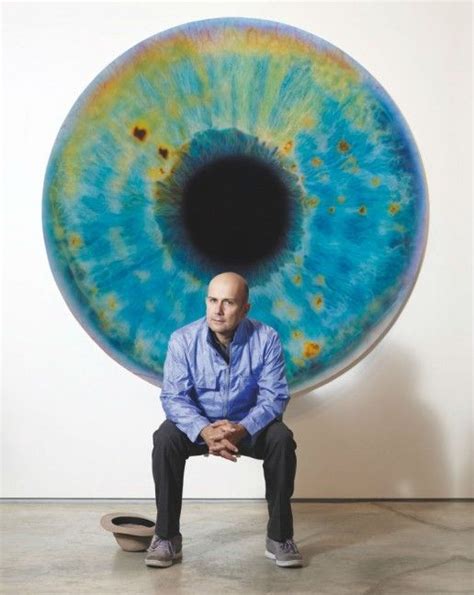A Quote by Richard Hell
Another thing that's good about writing to describe a situation or a state of consciousness is that you can finally get it right. That was my intention, and that's always interesting.
Related Quotes
The thing that has always baffled me about people's perception of my writing is the sense that I'm a very controversial, opinionated, polarizing person. I feel like I write about things that I'm interested in, and I describe why they're interesting to me. I could be negative, I guess. It's far easier to write why something is terrible than why it's good.
What do I think happens when we die? I think we enter into another stage of existence or another state of consciousness that is so extraordinarily different from the reality we have here in the physical world that the language we have is not yet adequate to describe this other state of existence or consciousness. Based on what I have heard from thousands of people, we enter into a realm of joy, light, peace, and love in which we discover that the process of knowledge does not stop when we die. Instead, the process of learning and development goes on for eternity.
When Things Fall Apart” and I quote “Life is a good teacher and a good friend. Things are always in transition, if we could only realize it. Nothing ever sums itself up in the way that we like to dream about. The off-center, in-between state is an ideal situation, a situation in which we don't get caught and we can open our hearts and minds beyond limit. It's a very tender, nonaggressive, open-ended state of affairs.
Fairfield Porter who has been my model for art writing all along, said that if the most interesting thing about a work of art is its content, it's probably a failure. I think it's true that if you find yourself thinking about the meaning in an author's message, it's probably not very interesting as art. Obviously, this is a tough concept, because if you withdraw intention.
In fact we say that an intention is good, that is, right in itself, but that an action does not bear any good in itself but proceeds from a good intention. Whence when the same thing is done by the same man at different times, by the diversity of his intention, however, his action is now said to be good, now bad.
The state has a right to do that [outlaw contraceptives], I have never questioned that the state has a right to do that. It is not a constitutional right, the state has the right to pass whatever statutes they have. That is the thing I have said about the activism of the Supreme Court, they are creating right, and they should be left up to the people to decide.
Academic writing you have to get right. Fiction you have to get plausible. And there's a world of difference. In a way, if someone says this didn't feel exactly right, I don't care. But that is not okay to do in academia - it's not about feeling. You want to establish a pretty solid case. So did this allow me to express things differently? Absolutely. Another thing I've been thinking about as an academic: our writing style is expository, and in fiction, withholding information matters quite a bit. Withholding things in academia - there's no place for that!
What if consciousness is the ground of being? What if the possibilities discovered by quantum physics are the possibilities of consciousness itself? Remember there is already a class of people who think in this way. They are called mystics, and they say it is all God. Finally, a few scientists dared to say that some of the characteristics attributed to God are similar to what we describe as consciousness.
There's never the right last moment. Even if you get to say good-bye, even if you get to say "I love you", even if you jump off a plane and get a tattoo and hug everyone you've ever met right before you drift off with a smile, it is never the right last moment. There is always more to say, somewhere to go, something to remember. Another discussion, another fight. There is always supposed to be another day.
There are very few good writers about art, and you either get art-fashion writing with trendy views or you get very traditional writing. Occasionally, you get people who can write in an interesting way. Really, I think in a sense art writing needs to be renewed as well. It's in a pretty bad condition.
Baseball is actually interesting, I don't find me to be that interesting. But I am realistic enough to understand it's not about me, it's about the fact that I'm speaking for the game and people care so deeply about the game that they're watching to make sure that you do the right thing. And I feel a real responsibility to try to do the right thing as a result.




































